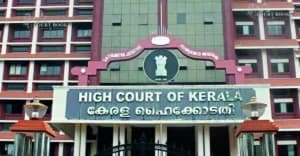The Supreme Court has ruled that pension is a constitutional right and cannot be arbitrarily curtailed without following due process established by law. The court granted relief to a retired employee of the Central Bank of India whose pension was reduced by one-third without prior consultation with the bank’s board of directors, a mandatory requirement under Regulation 33 of the Central Bank of India (Employees) Pension Regulations, 1995.
A bench of Justices PS Narasimha and Joymalya Bagchi emphasised that:
“Pension is not a discretionary right of the employer but a valuable right over property and can be denied only by authority of law.”
Read also: Kapil Sibal Urges Supreme Court to Stop 'Udaipur Files', Calls It Vilification of Entire Community
The appellant in the case, a retired bank officer, was found guilty of irregularities in sanctioning 12 housing and mortgage loans, causing a potential loss of ₹3.26 crore to the bank. Though the departmental inquiry continued even after retirement, the bank issued a compulsory retirement order from the date of retirement (30.11.2014).
Subsequently, the appellate authority of the bank reduced the pension of the appellant by one-third. However, this decision was taken without the mandatory consultation with the Board of Directors. The Patna High Court upheld this action, following which the appellant approached the Supreme Court.
The Supreme Court held that:
“A plain reading of Regulation 33 reveals that the decision to grant a pension less than the full pension should be taken with prior consultation with the Board of Directors. This prior consultation…must be understood as a valuable mandatory safeguard before curtailing the constitutional right of an employee to pension.”
Read also: High Court: Jail Imprisonment Can’t Be Ground to Reject Appeal Against Property Freezing Under
The court highlighted that Regulation 33(1) allows the authorities to grant at least two-thirds of the full pension, but as per Regulation 33(2), no such reduction can be finalised without obtaining the approval of the Board.
"In these circumstances, ex post facto approval cannot be substituted for prior consultation with the Board before taking a decision," the court clarified.
Set aside the High Court's decision, the Supreme Court held that the bank had acted arbitrarily and unreasonably. The order reducing the appellant's pension was set aside and the appeal was allowed.
Read also: Isha Foundation Moves Supreme Court to Restrain Nakkheeran from Publishing Alleged Defamatory Content
The court directed the bank to reconsider the matter within two months, after giving the appellant an opportunity of being heard and obtaining prior approval from the Board of Directors.
Case Title: Vijay Kumar vs Central Bank of India & Ors.















